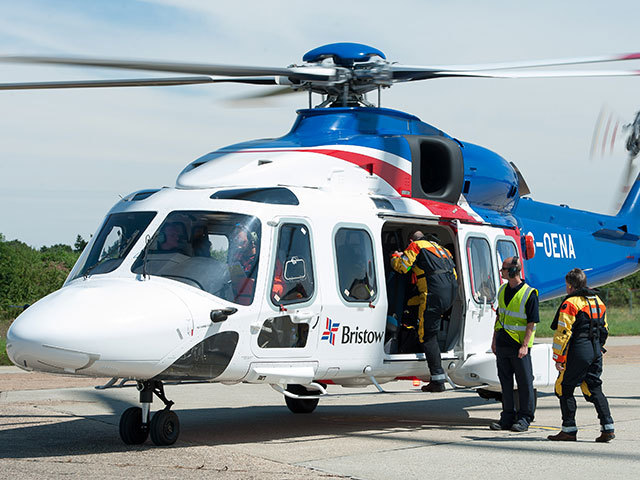
Losses have widened at Bristow as “challenging” oil sector market conditions and unfavourable currency exchange rates weighed the North Sea helicopter operator down.
The firm, which is part of US-based Bristow Group, posted pre-tax losses of £104.5million for the year to March 31, 2017, compared to a deficit of £25.6million a year earlier.
In its business review of the year, Bristow said underlying gross losses totalled £15.9million – against a £24.3million profit previously.
Turnover sank 8% to £348.7million, according to accounts published recently by Companies House.
Bristow attributed the widening of losses mainly to movements in foreign currency exchange rates.
The firm said the pound continued to weaken in 2017, which, together with a restructuring of Bristow Group’s intercompany balances, led to a foreign exchange loss of £57.6million.
The company suffered a £14.7million foreign exchange loss in its 2015-16 financial year.
Turnover from helicopter services dropped to £348.7million from £379.6million.
Its turnover from activities in the UK dropped 7.5% to £324.3million.
The copter firm’s latest accounts also show it employed 1,079 people on average during 2016-17, down from 1,203 the year before.
In October 2017, Bristow said it was “considering” plans to make 12 pilots redundant at its bases in Shetland and Norwich, which serve the oil and gas industry. A month earlier, it announced the loss of 12 engineering posts in Shetland and Aberdeen.
A spokesman for Bristow Helicopters said: “Continued instability in the oil price, and excess capacity in the market has made doing business across the energy sector increasingly competitive.
“The entire supply chain has had a significant amount of work to do to match the efficiencies sought by operators and, to secure new work and retain contracts the industry has had to evolve.
“Operational losses in the last financial year are reflective of the downturn in the energy industry, a downturn which continues to impact this year’s performance.
“We look forward to serving the global market for many years to come.”
Recommended for you

